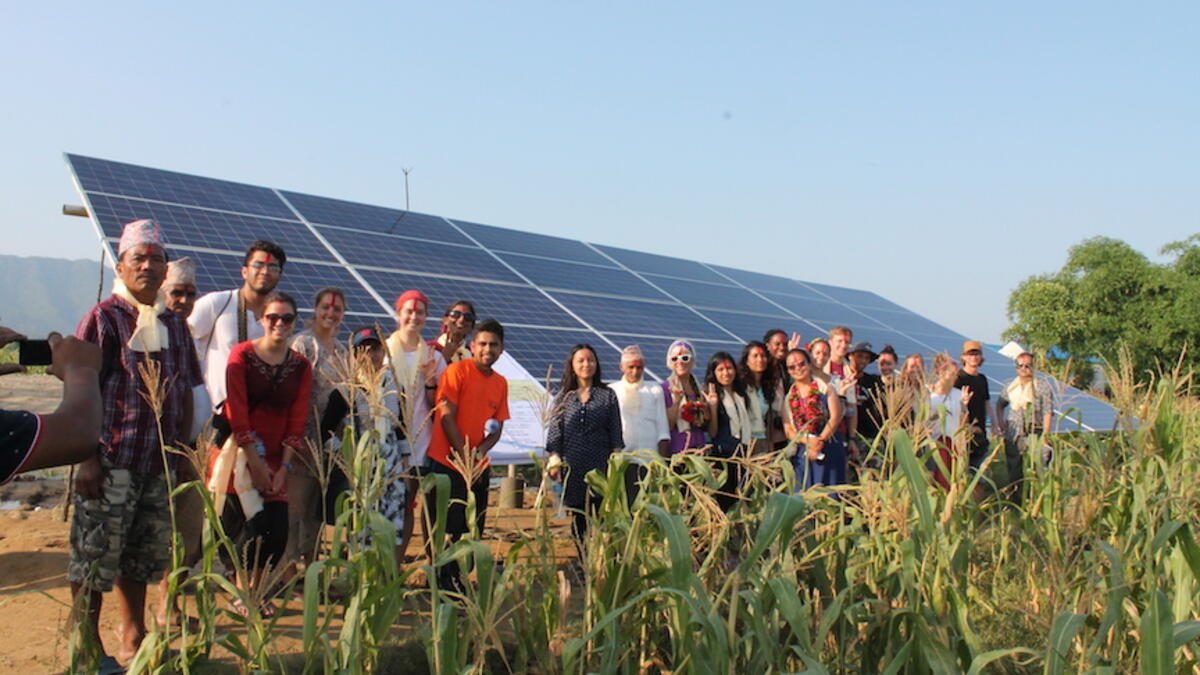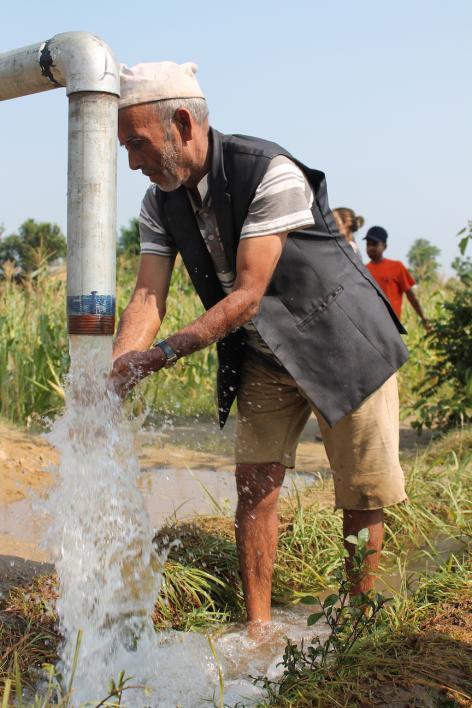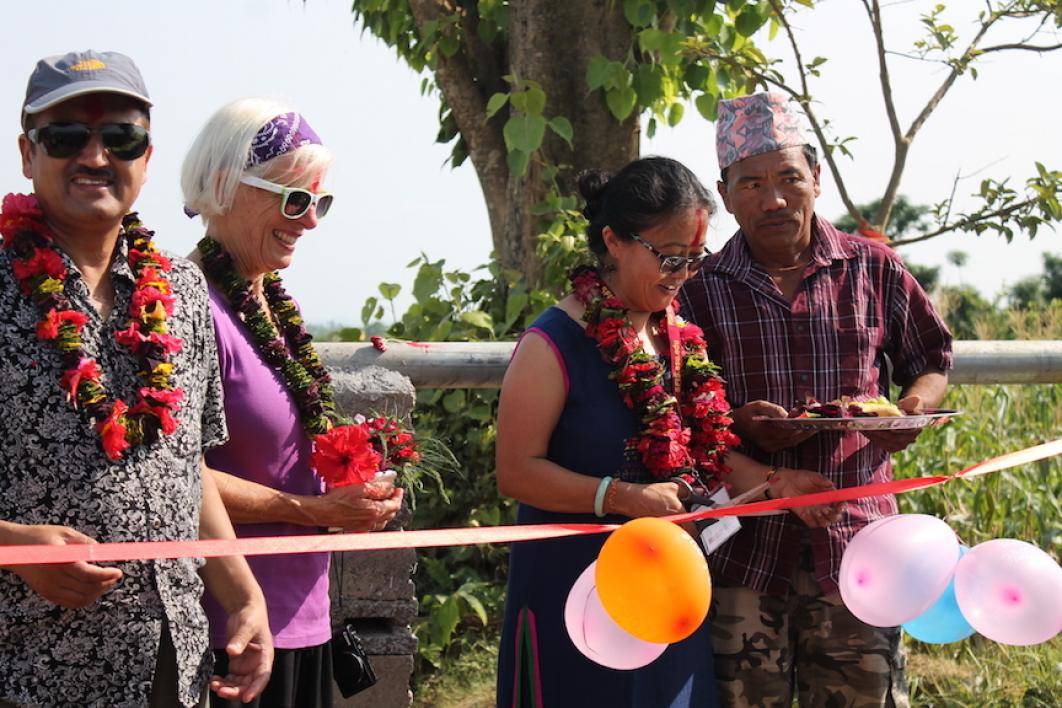In the Hindu Kush Himalaya region, an area that extends 3,500 kilometers across eight nations including Nepal and India, approximately 210 million smallholder farmers engage in a practice known as rain-fed agriculture. However, 80 percent of the annual rainfall in the area occurs during the annual four-month monsoon, so costly infrastructure is required to transport water from distant sources during the rest of the year.
This summer, a group of 11 Arizona State University sustainability and engineering students enrolled in a study abroad course organized through the Rob and Melani Walton Sustainability Solutions Initiatives that implemented solutions-based projects to help local farmers support their farms year-round instead of having to migrate to lowlands or to other countries as seasonal laborers. The program was coordinated through ASU's Study Abroad Office. The ASU students were partners with five students from the Tribhuvan University Institute of Engineering in Kathmandu.
The course, Grassroots Innovation for Sustainable Development, was developed through GlobalResolve. The student workers, who traveled to a community in the buffer zone around Nepal’s Chitwan National Park, developed hardware during the spring semester and then deployed it while they were onsite in June.
“This class cooperates with local farmers to combine existing irrigation and solar technologies to provide a refreshing shortcut for the region’s food and energy challenges,” said Netra Chhetri, associate professor and senior sustainability scientist at ASU. “With assured water supply, these farmers can plan their crops better and grow offseason vegetables that fetch four times more value than cereals, which are the current crops being harvested.”
To address the irrigation challenge, the class integrated a solar-powered lift irrigation system in the community of Kuleni. Due to declining costs of producing solar panels and solar integrator pumps, solar lift irrigation has the capacity to double the productivity and income of more than 25 smallholder farmers. A 10-kilowatt solar array that pumps approximately 7,100 cubic feet of groundwater per day from a 158-foot-deep aquifer has the potential to irrigate about 50 acres of land throughout the year.
Support for the installation, including $20,000 in material costs, was provided by the Kuleni community and a local private company, Sunbridge Solar Nepal. A Nepalese NGO, Local Initiatives for Biodiversity Research and Development, helped to identify the community.
Using a cellphone link and antenna, the system operation is monitored remotely from Kathmandu by Sunbridge Solar so they can identify problems and call local technicians for repairs without the difficult and costly commute from Kathmandu. Sunbridge also provided maintenance training to the farmers.
“Over the decade of experience that I have working in agriculture and rural development in this region, I have learned two things: Smallholder farmers have the ability to feed themselves but they cannot do it alone, and that technological and social innovation customized to location-specific needs of smallholder farmers can be part of the solution to lift people out of poverty, empower communities and ultimately contribute to regional geopolitical stabilization,” Chhetri said.
This program is one of more than 250 offered in more than 65 different countries around the world through the ASU Study Abroad Office. Students can participate in programs as short as a week, as long as a year and nearly anything in between to earn academic credit. For more information about study abroad programs, visit the Study Abroad Office website: https://mystudyabroad.asu.edu/
Top photo courtesy of ASU/Walton Sustainability Solutions Initiatives/GlobalResolve
More Science and technology

Lucy's lasting legacy: Donald Johanson reflects on the discovery of a lifetime
Fifty years ago, in the dusty hills of Hadar, Ethiopia, a young paleoanthropologist, Donald Johanson, discovered what would become one of the most famous fossil skeletons of our lifetime — the 3.2…

ASU and Deca Technologies selected to lead $100M SHIELD USA project to strengthen U.S. semiconductor packaging capabilities
The National Institute of Standards and Technology — part of the U.S. Department of Commerce — announced today that it plans to award as much as $100 million to Arizona State University and Deca…

From food crops to cancer clinics: Lessons in extermination resistance
Just as crop-devouring insects evolve to resist pesticides, cancer cells can increase their lethality by developing resistance to treatment. In fact, most deaths from cancer are caused by the…




